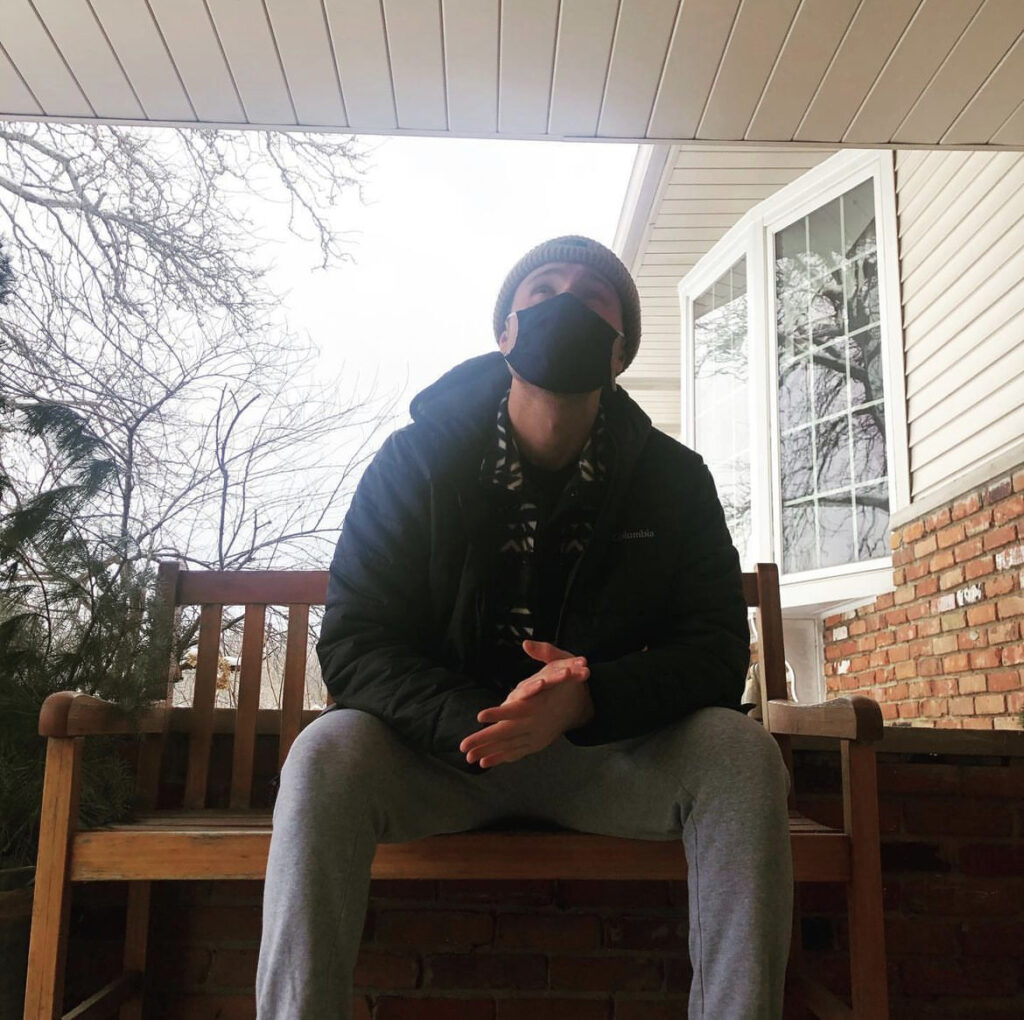
Mental Health in College Students During the COVID Pandemic
COVID-19 has impacted tons of college students if not all students. Universities had to close down and students were behind a screen. There were no social experiences in what college is advertised for, which led to many mental health issues in students.
In a study done in 2022 by members of the Yale Institute of Health at Yale University, students were forced to adapt this way of learning without even knowing what was happening.
In an interview with Dr. Amyn Malik, one of the researchers for this study, he said that due to the heightened circumstances of the pandemic, with everyone in isolation it was a storm waiting to be caught when talking about mental health.
“Problems also arise when students would be bored, and have nothing to do. The lasting impact of the mental health problems are real and some students still struggle with depression and anxiety after the pandemic.”
Dr. Amyn Malik
“The pandemic in regard to college students, the main cause of mental health problems was the isolation that led to distress and anger,” he said. “Problems also arise when students would be bored, and have nothing to do. The lasting impact of the mental health problems are real and some students still struggle with depression and anxiety after the pandemic.”
In this same study, depression raised a whopping 46% and anxiety raised up 70% during the pandemic. “This was the most shocking piece of data that came out of this study,” he said. “There were several factors that went into this that were explained in the study like being related to someone who works in the healthcare system or knowing someone that had COVID-19.”
In addition to depression and anxiety, stress levels also went up 55% in college students that reported in this study. And according to bestcolleges.com, the top three symptoms in college students during the pandemic were social isolation/ loneliness, increased anxiety and lack of focus. In addition, according to BMC Psychology’s study in 2021, the impact of the covid pandemic indicated that it hurt students that were closer to graduating that year compared to any other year and where the same three symptoms being reported were depression, loneliness and anxiety.
In that same study, about more than 60% of students found it harder to complete the semester online, and found that first-year students likely took a gap year to take off from school in the pandemic.
According to a study by the University of Minnesota, “There was a high prevalence of stress (20.6%), anxiety (23.7%), depression (15.4%), suicidal thoughts (13.8%), and PTSD (29.7%) 15 months after the pandemic began.” (Beusekom, 2021) As well, in the multiple studies shown in this article, some underlying factors on some mental health diseases come from not being financially stable and living in a certain area.
In a survey by the National Library of Medicine, they gathered 195 students and 138 or 71% of the group said that covid caused an increase in amount of stress and anxiety. Not only that but 91% of the group said that the pandemic had negative impacts from the pandemic.
“I would usually find a random burst of energy from time to time and do 2 weeks of work in a day and then just do nothing for a while.”
Alex Smearman
Alex Smearman is from Middleburg Heights, Ohio and went to school during the covid pandemic, saying it negatively impacted his mental health. Adding on that it was hard to find any motivation at all. “I had a lot of anxiety about the future,” he said. “I think the isolation let in a lot of negative thoughts in and I really didn’t know how to deal with them myself.”
As mentioned earlier, one of the main reasons why mental health has gone to these extremes even almost two years since the pandemic is the isolation that resulted from covid. “The isolation added a lot of stress to my life, and that stress made it even harder to find the motivation to learn,” he said. “Basically I was getting the work done and taking nothing away from it in the long-term.”
As classes got moved to online and even non-synchronous, courses were much more lenient on due dates. “Most of the classes I took were online and non-synchronous,” he said. “”I would usually find a random burst of energy from time to time and do 2 weeks of work in a day and then just do nothing for a while.”
Looking back on the pandemic, this is an event that people will remember forever. Especially young students who went through it while in school who couldn’t wait to return to in-person classes. “I can honestly say that the pandemic was the single most impactful time in my life in terms of mental health,” he said. “I never felt so distracted after going back to in-person classes, but I was eager to return because I really craved human interaction.”
“I was used to always being in a classroom with other students and having an interactive experience with the teacher.”
Jacob Walker
Jacob Walker from Berea, Ohio had a different but also similar experience during the pandemic. Saying that at first his mental health improved at first due to the free time given and the lack of responsibilities but got much worse as time went on. “I didn’t have any motivation to do work while fully online,” he said “I was used to always being in a classroom with other students and having an interactive experience with the teacher.”
Some students like Jacob have had pre-existing mental health issues and the pandemic didn’t help make it any better. “My mental health really hasn’t gotten better since peak pandemic,” he said. “I’ve struggled with anxiety and depression my whole life and I might start seeing a therapist soon.”



